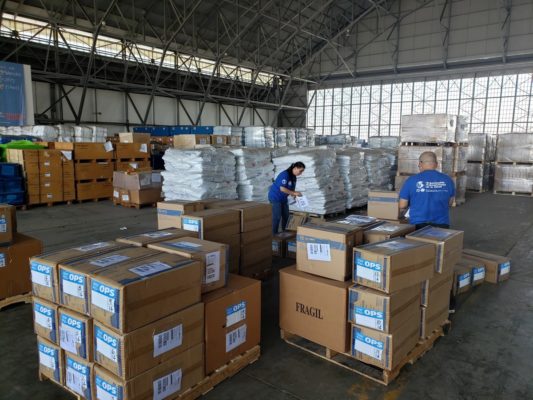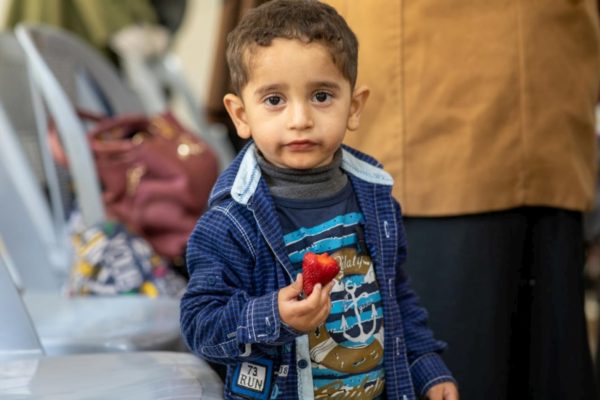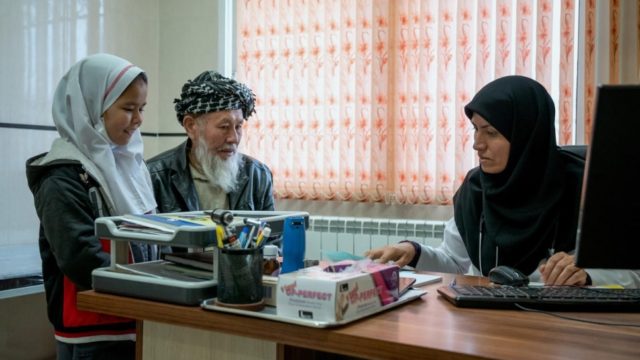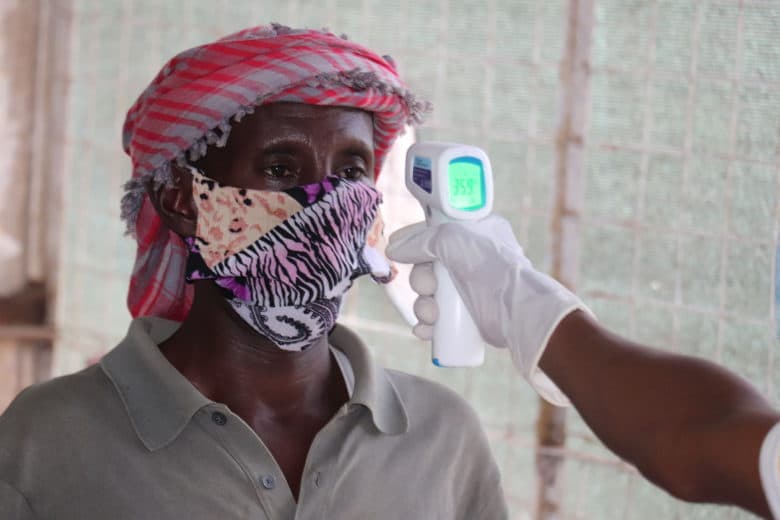
A refugee has his temperature taken before collecting his UNHCR and WFP food and aid package at Dadaab camp in Kenya. © UNHCR/Mohamed Jimale
How UNHCR is helping the forcibly displaced during a historic public health emergency
It is the single greatest global public health crisis in more than 100 years. There is no aspect of our daily lives that has not been impacted by the coronavirus pandemic. The virus does not discriminate.
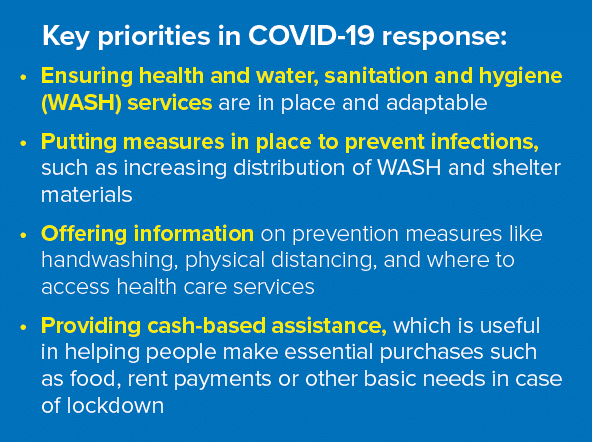
The COVID-19 pandemic has also created a fresh set of challenges for humanitarian organizations like UNHCR working urgently to support the forcibly displaced.
Resettlement departures of some 10,000 refugees were delayed for months. Restrictions on movement and limited access to refugees, asylum-seekers, internally displaced people (IDPs) and stateless persons around the world remain in place. Conflicts, war, persecution, extreme weather events and other factors that severely impact the lives of children, women and men daily have not stopped.
As the deadly virus continues to spread, UNHCR’s ongoing efforts to keep displaced communities safe and healthy continues as we seek to protecting those most in need of assistance.
DONATE TO SUPPORT OUR COVID-19 RESPONSE
Faces of the pandemic
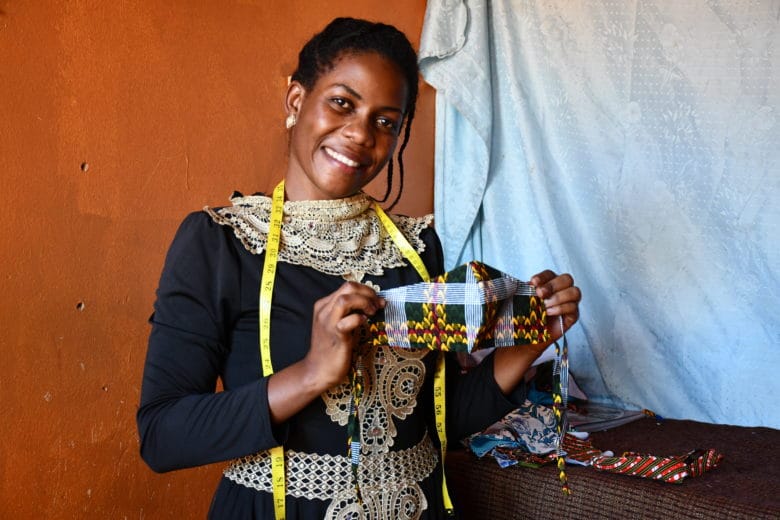
Liesse Ombeni, 28, is a mother of five little children. She fled to Uganda with her husband in 2015 from South Kivu, in the Democratic Republic of Congo. © UNHCR/Alassane Guindo
Liesse is a married mother of five who fled from the Democratic Republic of Congo to Uganda in 2015.She was trained in tailoring at a UNHCR-funded community centre in Kampala. After completing a six-month course, she rented a small tailoring shop near her home — and the business thrived. But then the COVID-19 pandemic reached Uganda, and the government enforced a countrywide lockdown to contain the spread of the virus. No public gatherings mean no weddings or social events, fewer clients — and a dwindling family income. Liesse is now the sole breadwinner and has started producing non-medical, washable masks out of African fabric Kitenge and hopes to produce 50 masks a day.
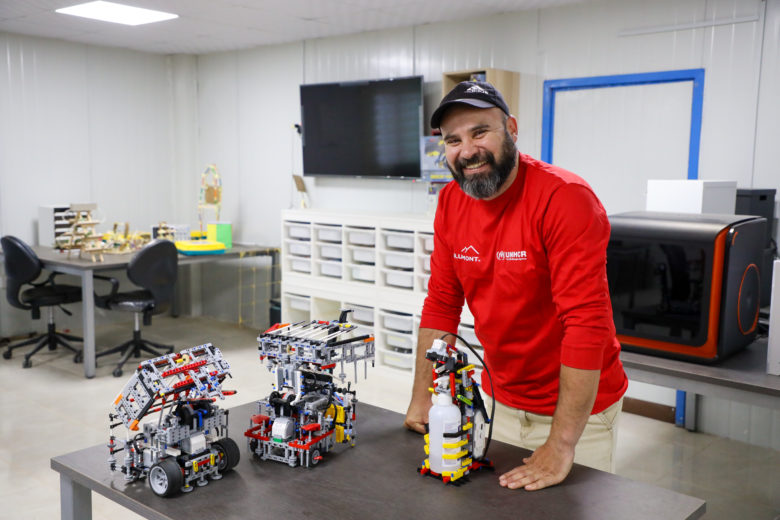
Syrian refugee Marwan al-Zoubi poses with the LEGO robot he helped design at the Innovation Lab in Za’atari camp, Jordan. © UNHCR/Yousef Alhariri
Marwan, a Syrian refugee, holds the LEGO prototype robot he helped design at the Innovation Lab in Za’atari Camp in Jordan. It automatically dispenses hand sanitizer so people don’t have to touch the bottle – reducing the spread of COVID-19.
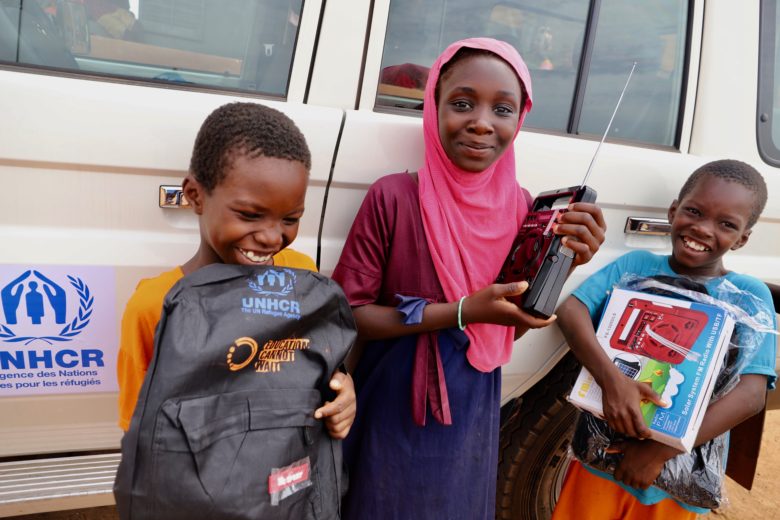
Internally displaced Malian children receive solar-powered radios and school kits from UNHCR at Sarema school, to facilitate distance learning. © UNHCR/Alassane Guindo
In Mali, internally displaced children receive solar-powered radios and school kits from UNHCR to help facilitate distance learning while schools remain closed during the pandemic. The children learn by listening to programs broadcast over the radio, allowing thousands of children to access education.





